20 inmates show the heartbreaking cost of growing old behind bars
This post originally appeared at Narrative.ly.
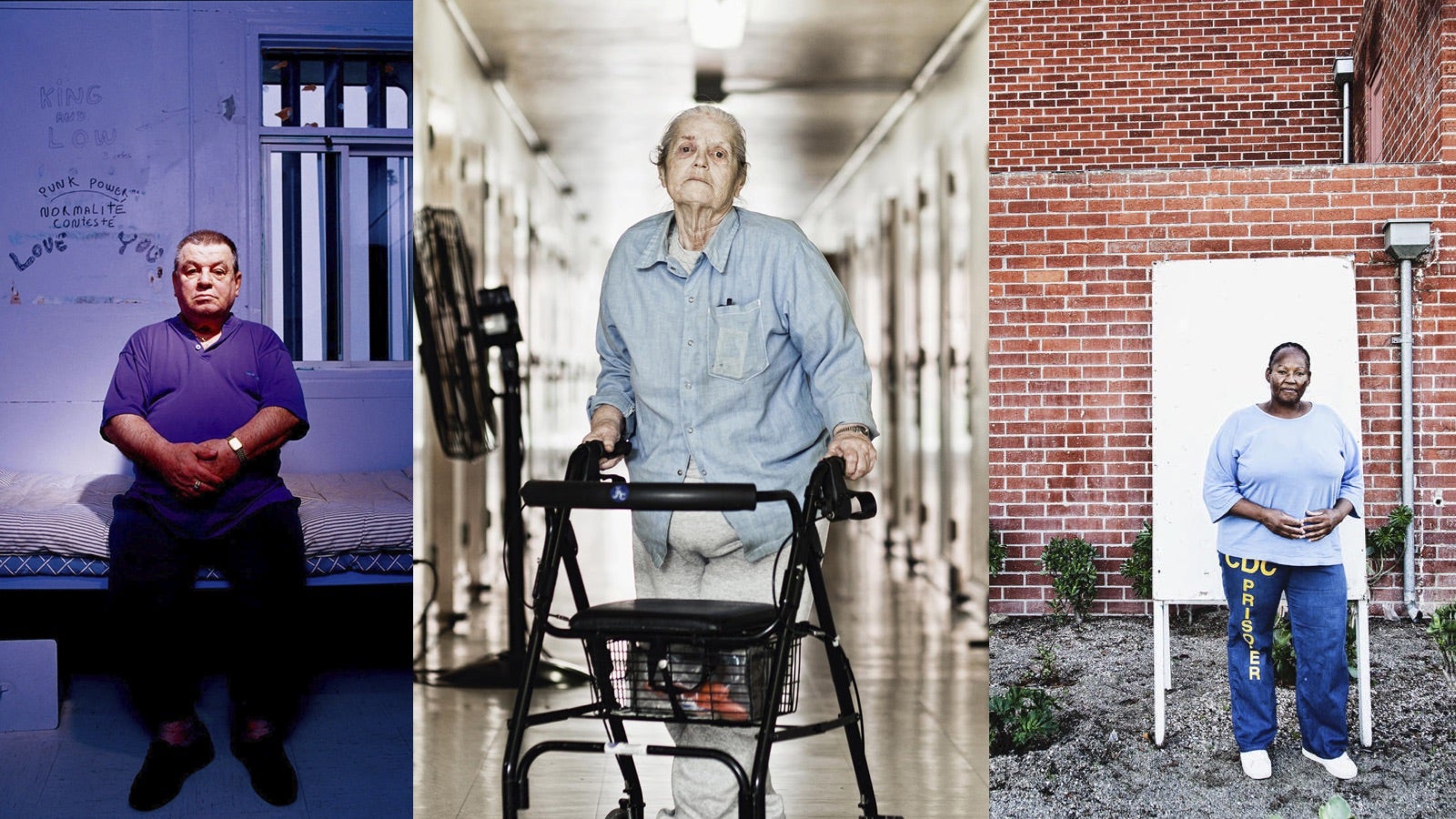

This post originally appeared at Narrative.ly.
Since 1996, photographer Ron Levine has been taking photos of and conducting interviews with elderly prisoners and corrections personnel throughout the United States and Canada.
According to the National Institute of Corrections, prisoners age 50 and older are considered “elderly” or “aging” due to unhealthy conditions prior to and during incarceration. Using that definition, the ACLU found there were approximately 246,600 elderly prisoners behind bars in the United States as of 2012—and they comprise the fastest growing age group among inmates.
“Prisoners of Age” offers a microcosmic glimpse of what lies ahead. Existing prison space is in serious decline; bunk space and medical costs are soaring. According to the ACLU, the average expense of medical care and maintenance for inmates over 50 is $68,270 per year—twice that of an average prisoner, and the people who manage North America’s prison system are increasingly worried about how to handle the geriatric population. Statistically, the risk of recidivism decreases significantly with age, with very few elderly parolees ever returning to prison for committing crimes again, yet the number of older people in prisons continues to boom.

Margery Hernandez, 57, murder
“My husband was killed and we had an attorney who collected the insurance so I got 187 years for financial gain. They found his body in his pick-up truck. It was in San Francisco, he was going down that mountain and the truck went over the cliff. They said that it was murder. So I’m in here for 187.
I had threatened him in public shortly before because we were at a party and he was insulting me and saying bad things and I said, ”If you keep insulting me, I’ll kill you.” People around, you know how people do, they take the information and they put it in a way they want.
I was married to him for almost twelve years. He abused the kids really bad. They weren’t allowed to have friends over; they weren’t allowed to talk during the meal times; they weren’t allowed to go out; they weren’t allowed to have a childhood. They had to watch what he wanted to watch on TV. He was just very abusive. I worked and when I got ready to go to work, he’d check the mileage on the car. He’d time me coming home and if I was late he’d be on the driveway when I got home, he’d jerk me out of the car and start beating on me. He was just a very jealous man.”
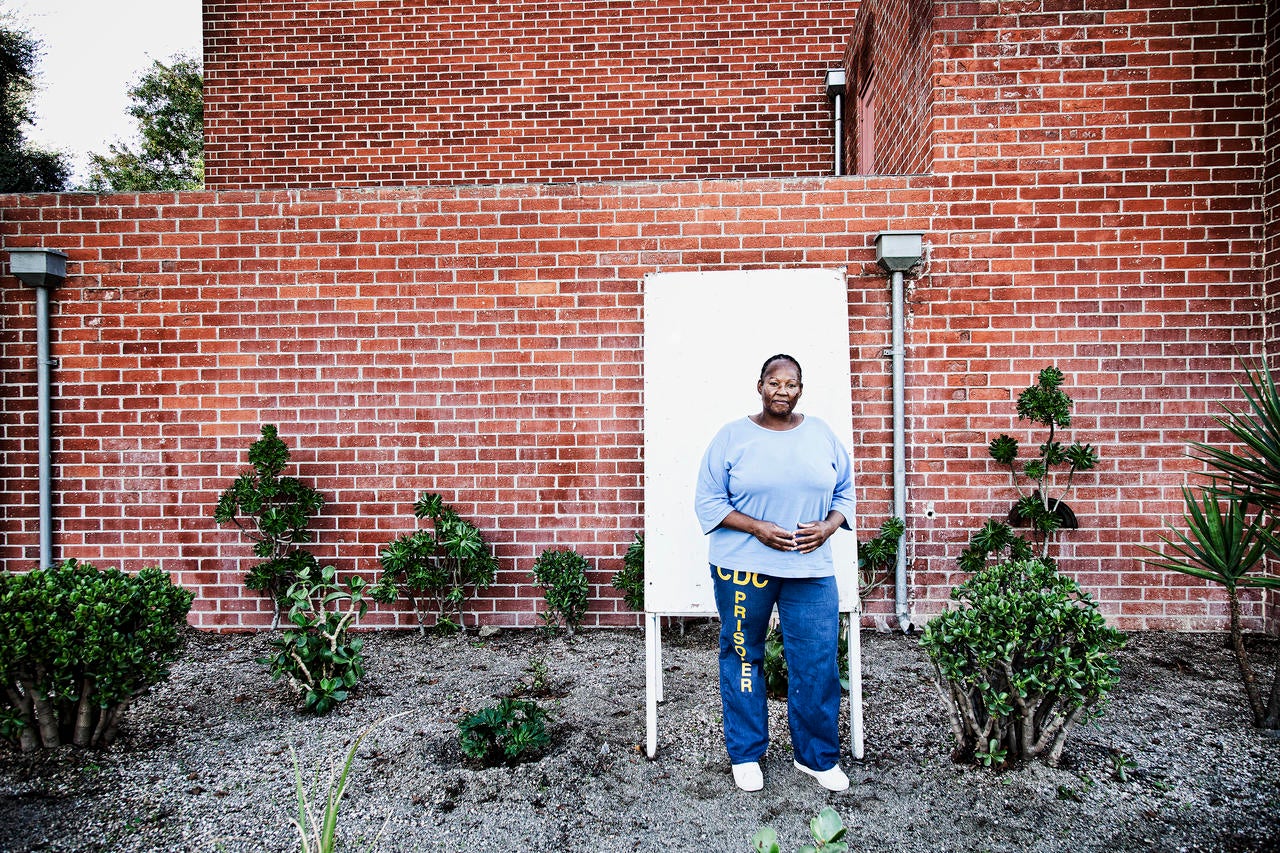
Edeline Charisse, 55, drug charges
“I got caught up in a situation in 1998. I owned a detail shop. The cops were after a certain group of guys that would come through. And they wanted me to help set up these guys. And I declined. It was like those old movies, ‘You don’t help us out, we got something for you.’
Unfortunately, I ended up getting 36 years. Never had a background. Never had a parking ticket. Never had anything but a lovable family that I wanted to continue to live. You just have to do what you have to do. So I ended up here.”
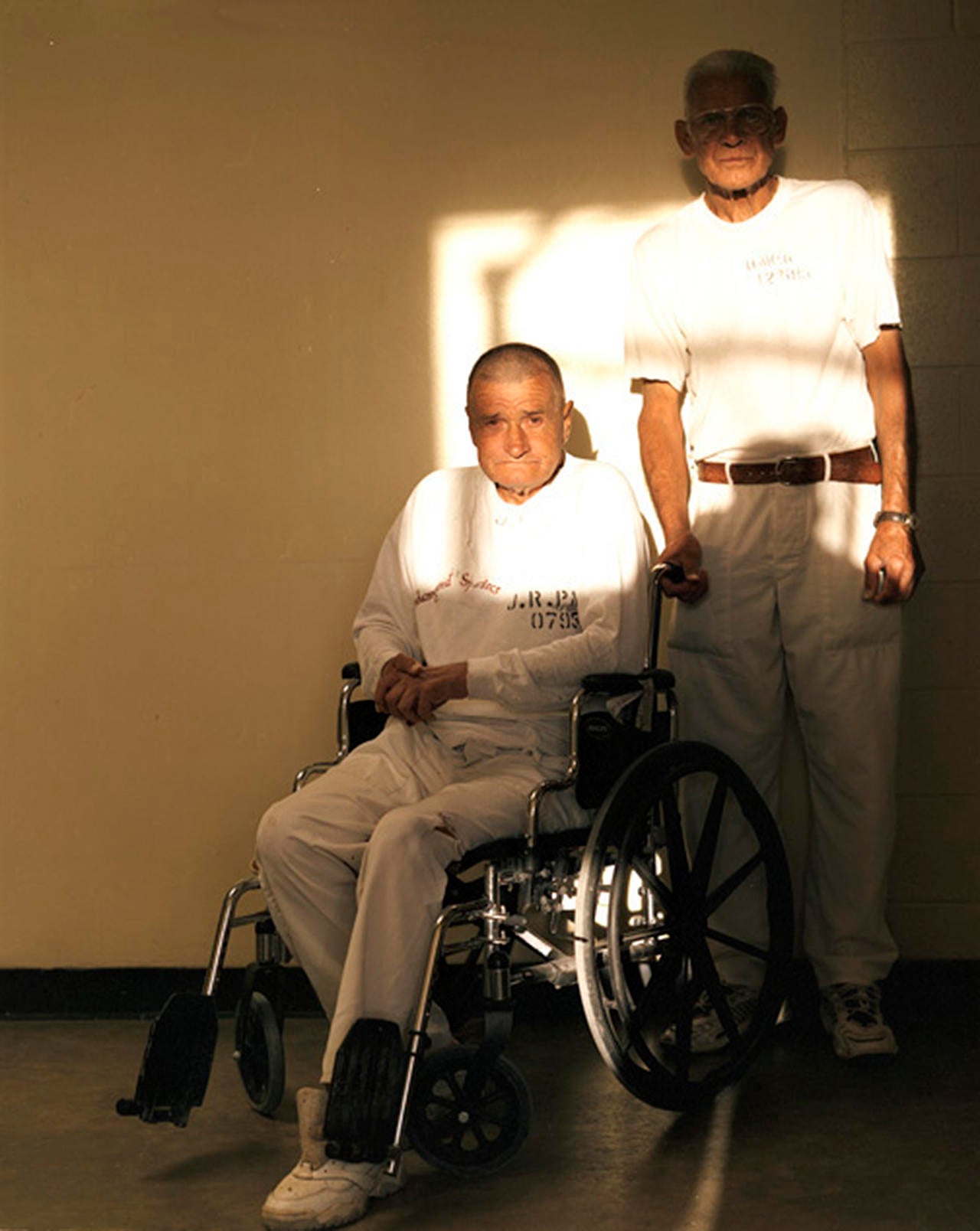
James Payne [sitting], 68, murder and Baker [standing], 76, undisclosed crime
James Payne: “I killed a Goddamn man. He was stealing from me. I shot the hell out of him. I’ll get out someday.”
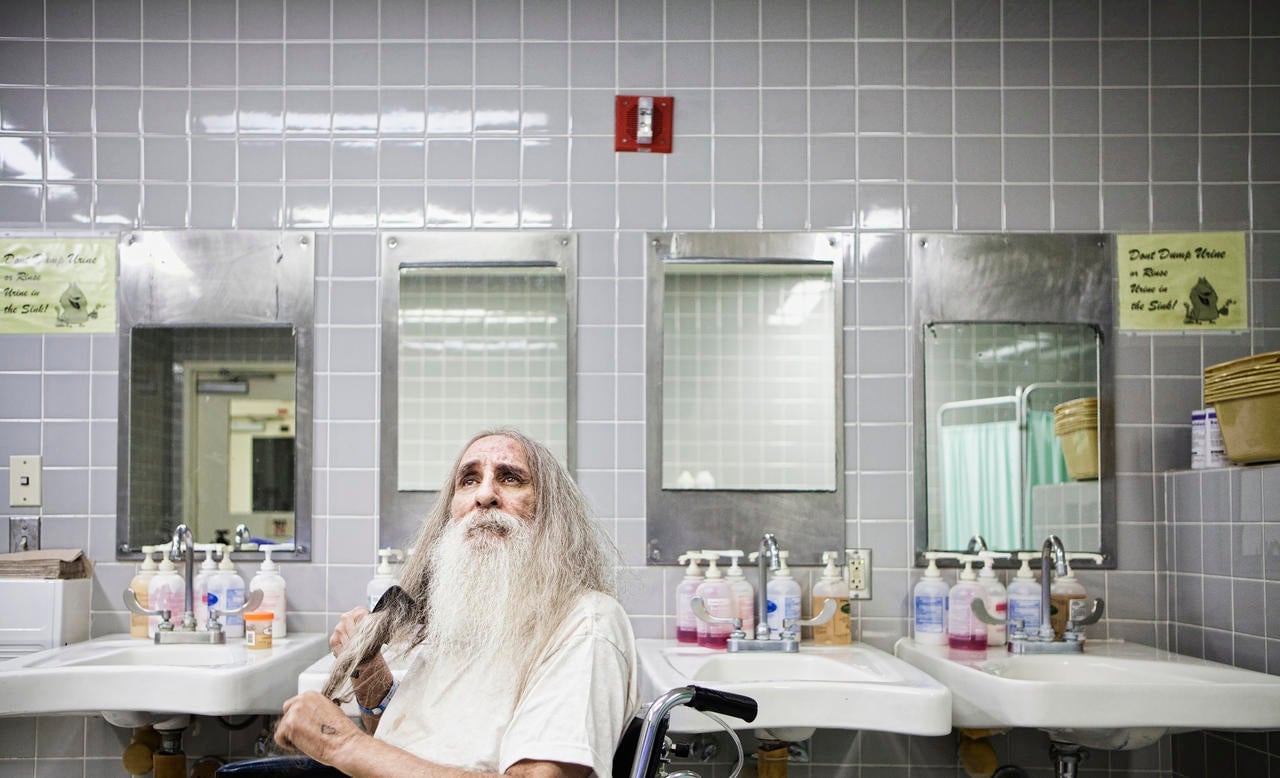
Ben Chavez, 58, robbery
“I was in prison eight years ago and stayed out for eight years. I was good. I was working.
I have something wrong with my lungs. I have cirrhosis of the liver. I have hepatitis. My doctor talked to a specialist and they hope that I can get out…a pardon or a parole…and I’m hoping that I’ll make it out of here. One way or another.”
Chavez was released from prison in 2013.
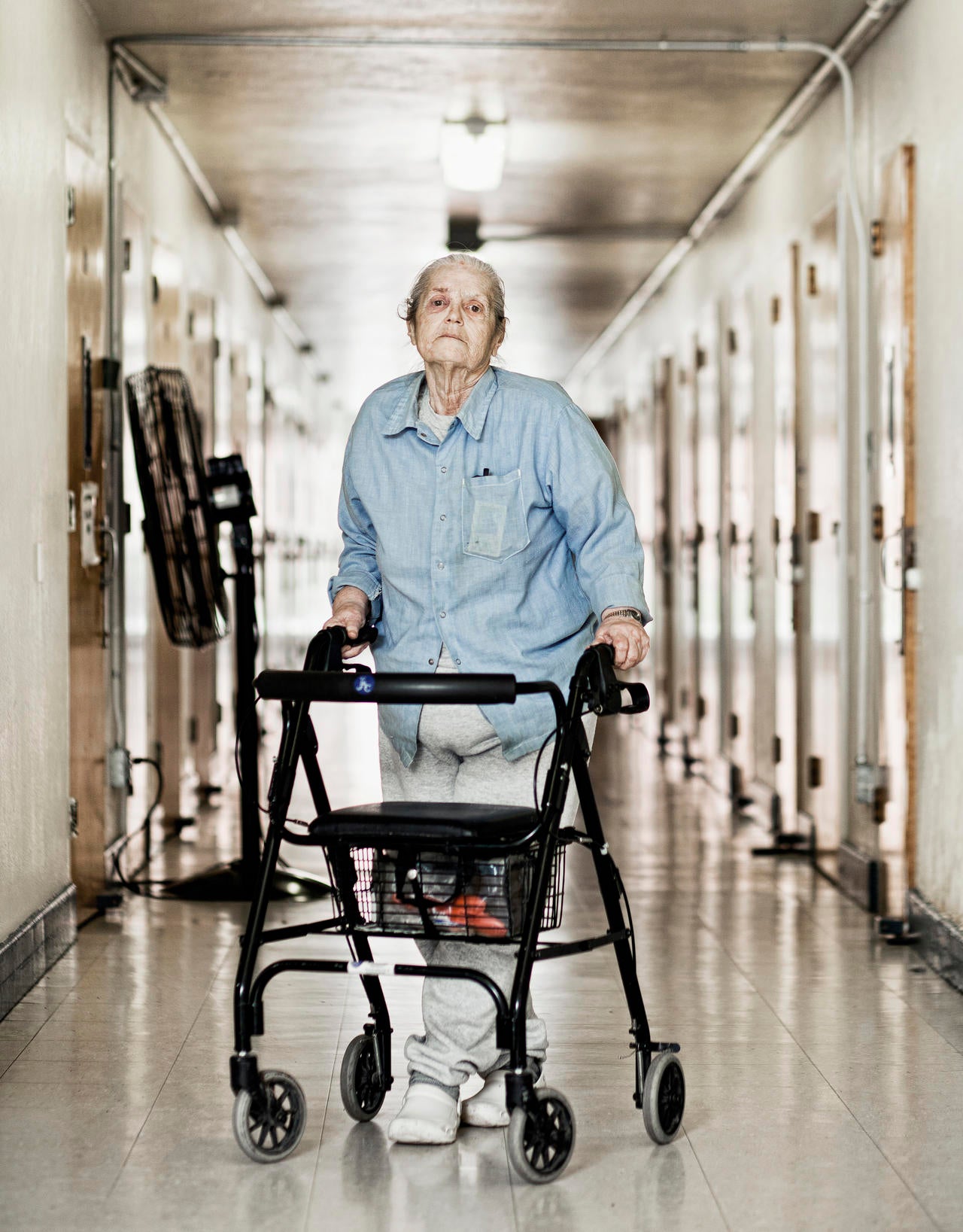
Theda Rice, 77, murder
“I’m in here for ‘helping my family.’ I learnt my lesson. That won’t happen again But y’see they don’t help me. I have children, but the last I’ve heard from them was in 2005. I just take care of myself the best that I can.”
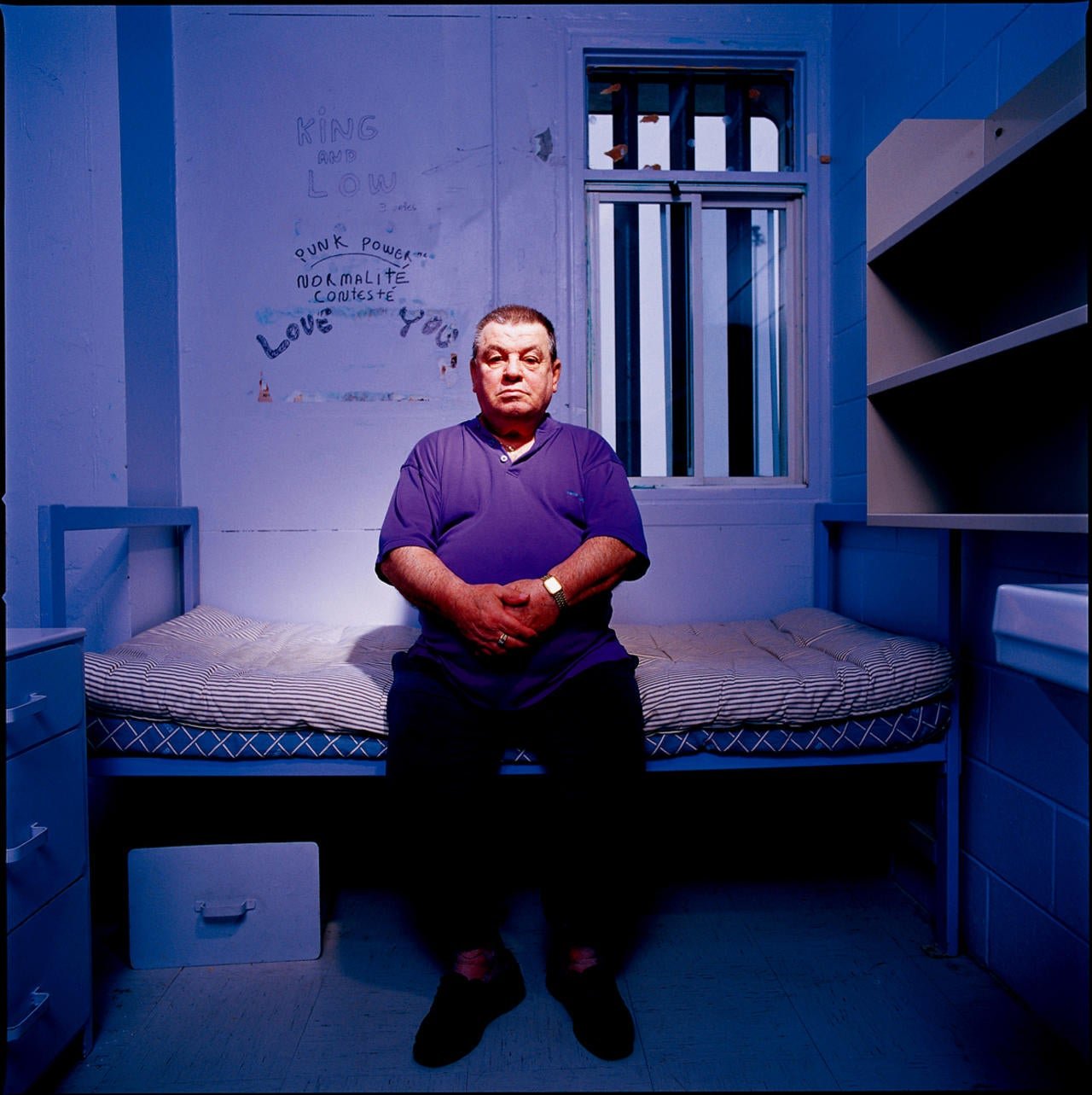
Marcel Carriere, 72, murder
“The [sentence] I’m serving now is for murder; it’s my second murder conviction. The first one, I had killed a woman and was sentenced for life. I was eligible for release after ten years and got out the year after. I was free for a few months, then I killed another man. I had gotten mad after he refused to give me a job as a janitor and I killed him with a hammer. Then I took him to the garage. I cut off his hands, his feet and his head. I then put everything in green bags and it was picked up with the garbage.
My trial wasn’t long. It lasted two days. I didn’t defend myself. I was fed up. I wanted it to finish fast.
When I’m outside, I’m an insecure kind of guy. Will I work tomorrow? Will I have something to eat tomorrow? Tomorrow scares me. I knew life in prison. I thought to myself” ‘I’ll go back, it’s not that bad.’ That’s exactly why I wanted that job as a janitor. It would have given me a permanent job plus a place to stay. I would have been OK. But this guy took it away from me and that gave me a blow. I know I shouldn’t have killed him but the rage took over.
You can say that I ruined my life.”
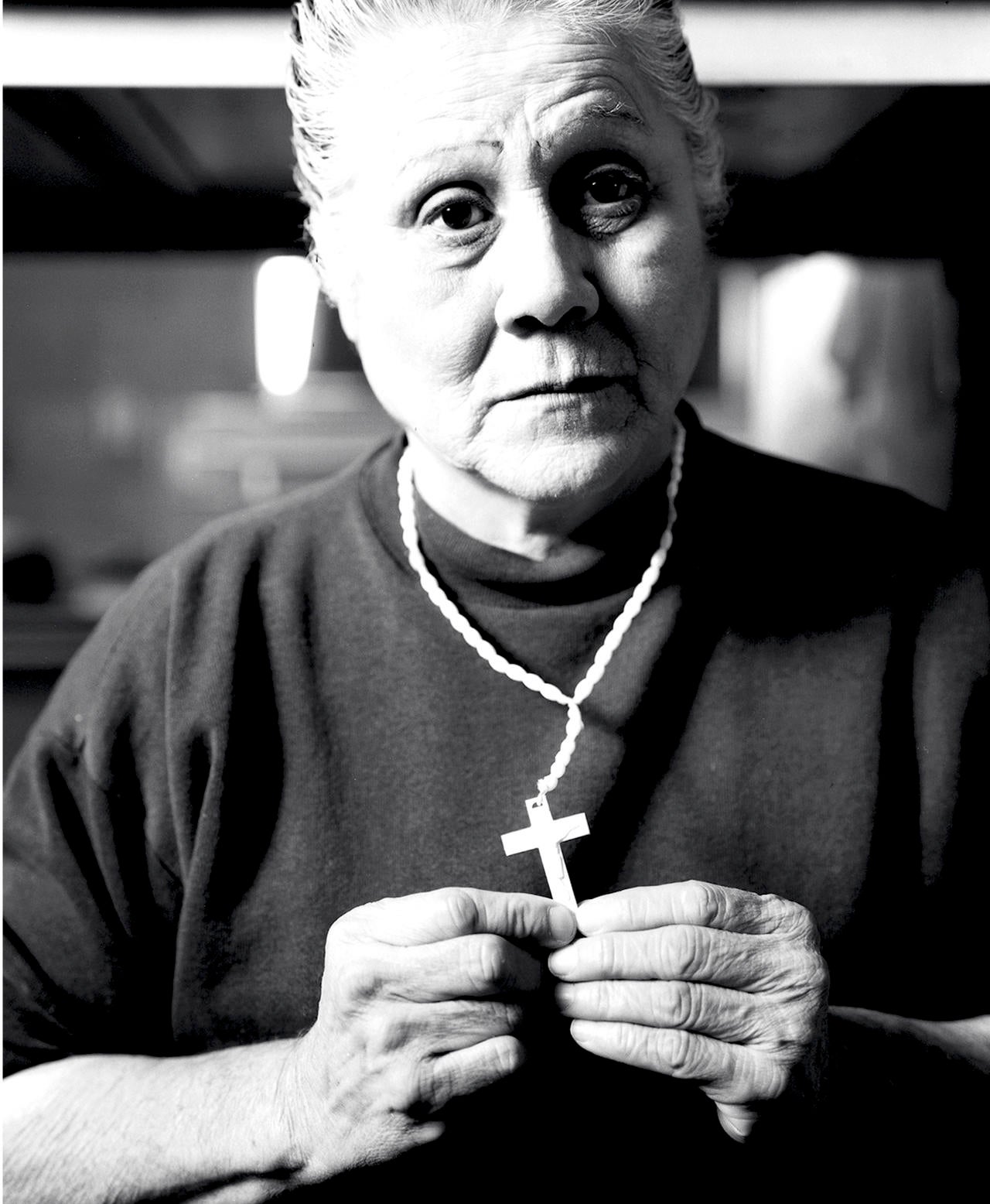
Consuelo Muños, 63, spousal abuse
“I’m an alcoholic, my husband is an alcoholic and we fight all the time. He used to like to go out drinking with other women and I found out about it and like—I’m a very jealous woman.
If God permits for me to go home I’m gonna change my life but I need God’s help to make it with my addiction. And I know that God is very merciful and powerful, that there’s nothing that Jesus Christ cannot do. I just have to seek him and he will take me wherever I want to go. If God allows me, I plan to be a good mother and a good wife and some day I will make it.”
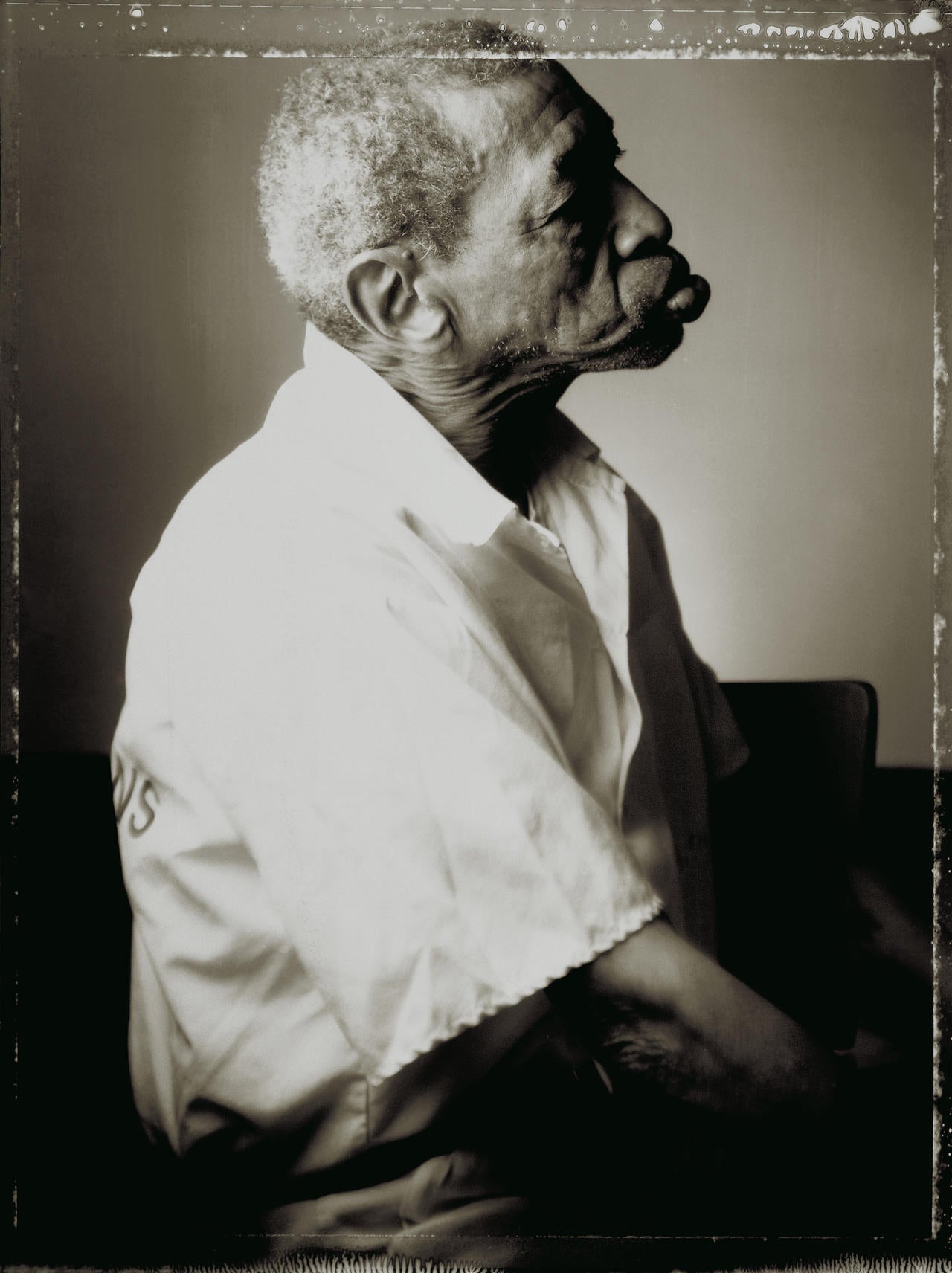
Walker Smith, 76, murder
Captain Joe Robertson, a corrections officer at the Hamilton Institution for the Aged and Infirm in Alabama, the country’s first geriatric prison, talks about Walker Smith, seen here.
“Walker Smith was working on his mother’s washing machine and she kept giving instructions and I think it was more than Walker could handle, and he just took the kitchen knife and stabbed her to death on the spot. Walker doesn’t get a whole lot of outside support.
He’s gotten to the point in his life now where just a simple dog tag chain…I managed to confiscate one of these from the armory down there and brought it to him and that absolutely made his week. He told me days after that how he appreciated that chain.. That’s all his possessions is what he wears around his neck. Everything else belongs to the State of Alabama.”

Jules Sauvageau, 59, attempted murder
“I started stealing when I was fifteen. I robbed banks. I always worked alone. In 1994, I was caught for attempted murder. I had mixed booze and medications. Eight months ago I got married to a woman my age and it’s going well. That’s why I want my release, to live with her. In 1996 I got lung cancer.
Now, I’m getting treated but they won’t release me. They’re waiting for me to die. I lost 50 pounds since October 1999.
I regret committing the crime that sent me here, but I think the system isn’t fair for the situation I’m living in now. There should be improvements. Especially when someone has cancer. They should let them go live with their family. I was twice refused conditional release.”
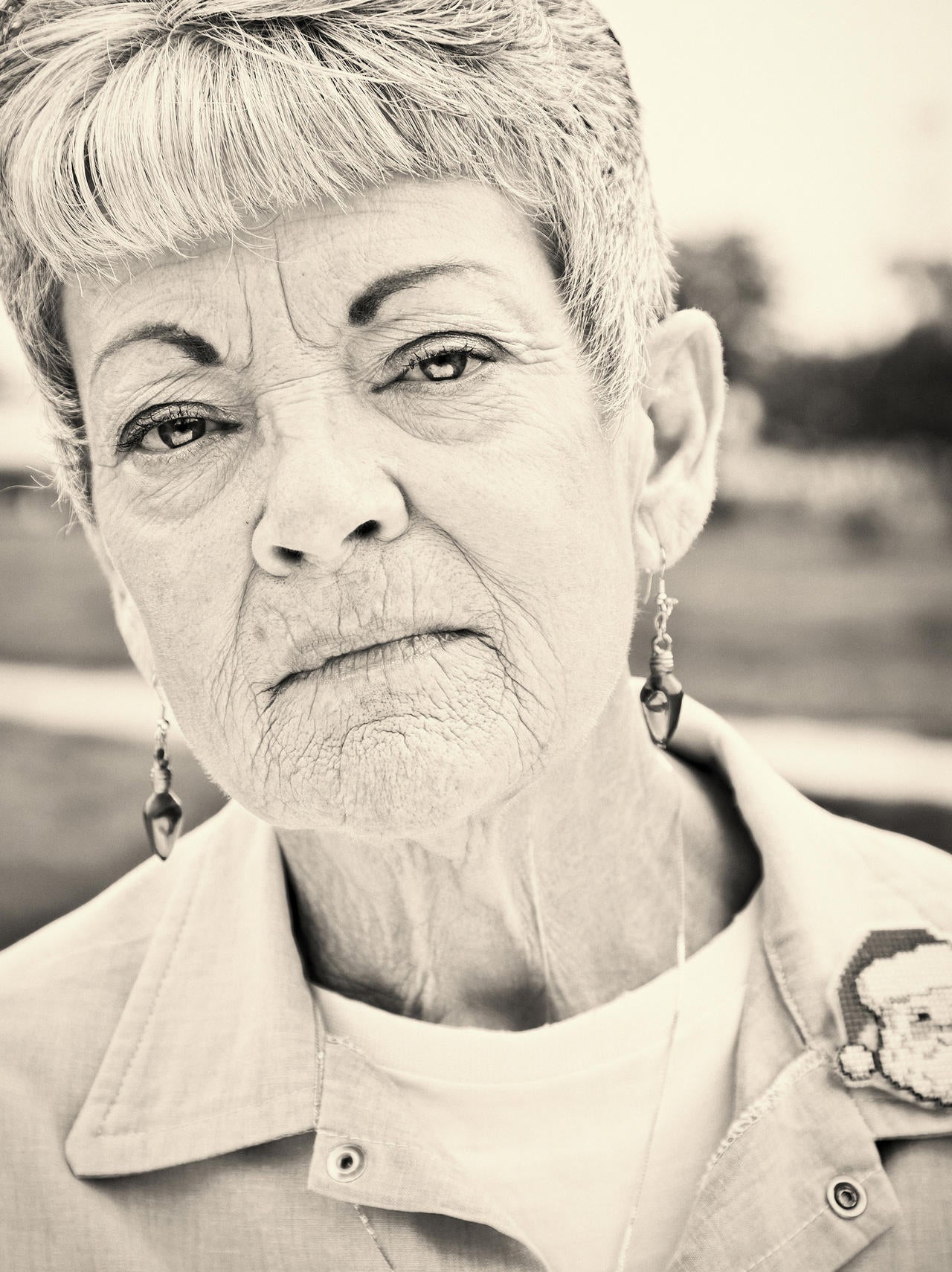
Lillie Hollandsworth, 66, undisclosed crime
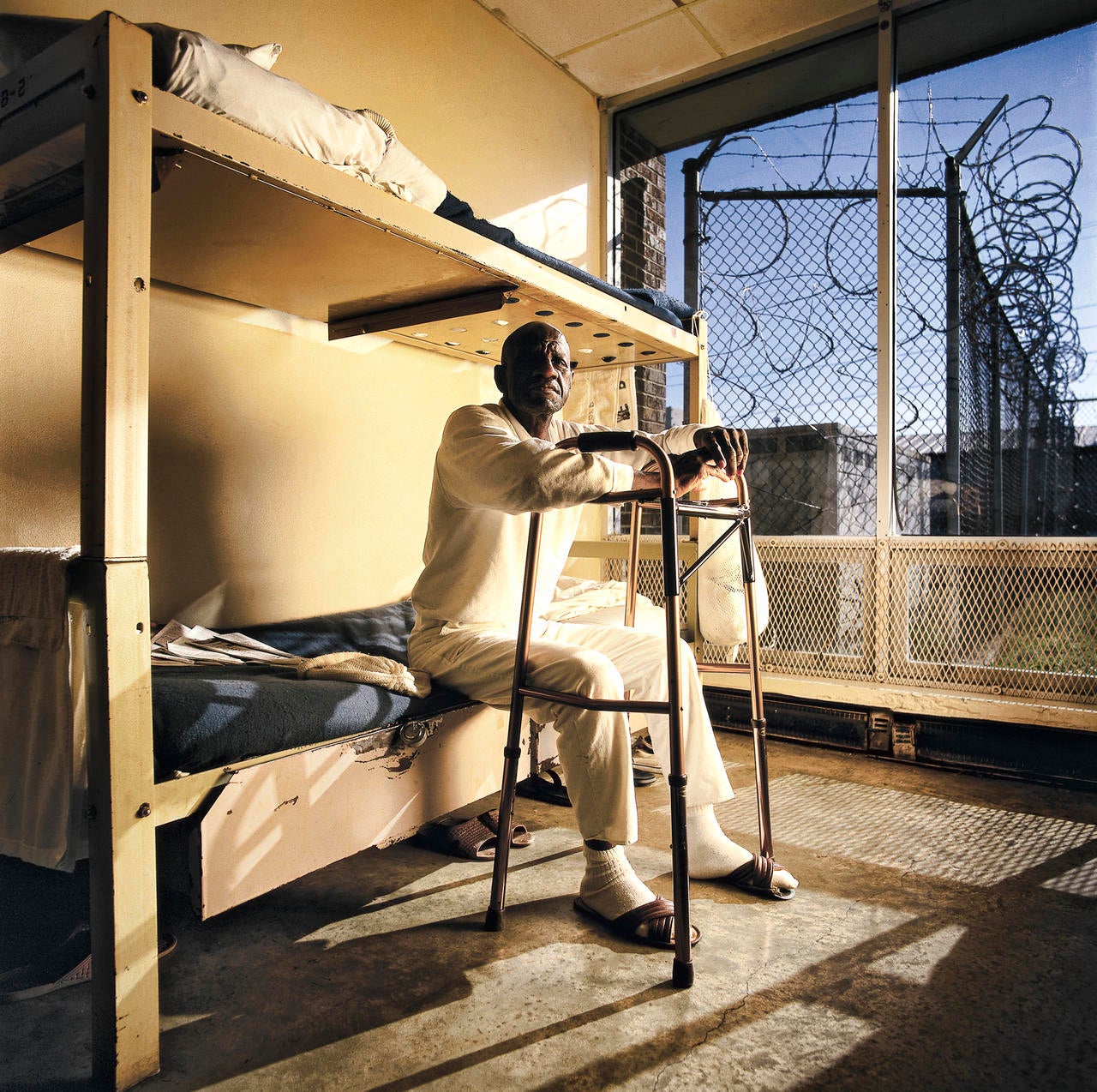
William Howard “Tex” Johnson, 67, robbery
“Well, I got 50 years. Snatching $24 out of a man’s hand. It was 1959 in Birmingham (Alabama). A lot was going down. We were struggling with the civil rights thing, and Dr. Martin Luther King was leading it. And I had come down there with this organization. I didn’t even think about it [the racial motive], because all I was thinking about is, I get the chance, I’m gonna escape, and I did.
I’ve escaped three times. And I could go like the wind, and they never could catch me. The last time I escaped it was 1962. They didn’t catch me till 1992. They never gave me no time for escaping. All they do is just get you and bring you back and that’s all.
I’m a little disappointed at myself, you know. ‘Cause I got a good education. My first wife had died. Then I married another girl. She and I had a son. I guess she’s dead, too.
It’s a waste of a life, it is. I’m in no shape to run now. I’d like the freedom. But I’d never get over the fence.
I’m doing 50 years for robbery. But I never robbed anyone. I only took 24 dollars from one man. I consider robbery is when you use a weapon. I never used a weapon. What I would like to do, I would like to write a book for young black people. Tell them that this ain’t the way. This ain’t the way. You don’t do it this way. That’s what I would like to do. Maybe someday I will.”
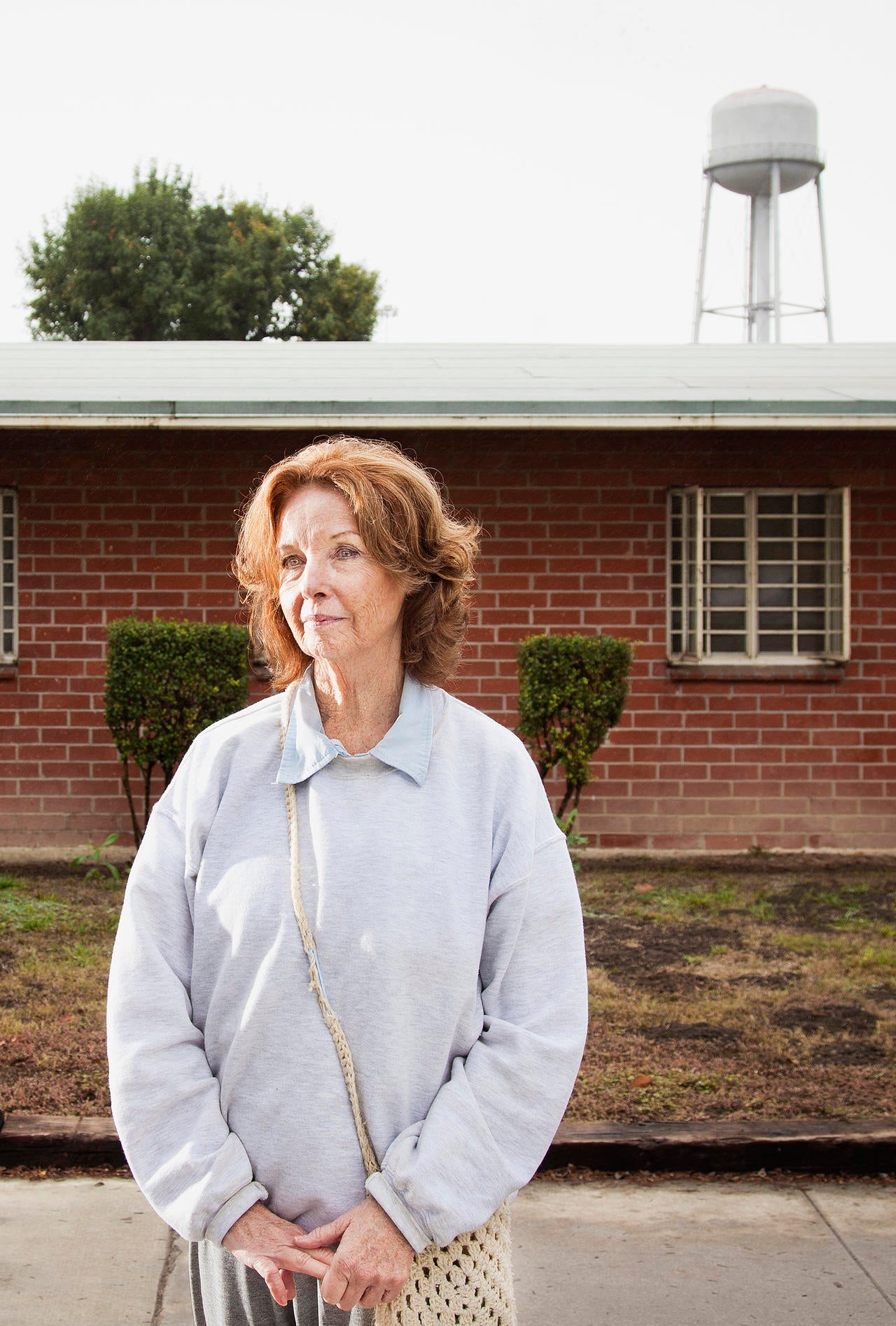
Jane Dorotik, 66, murder
“Being in prison is horrifying, really. It’s horrifying to see how women are treated in prison. Prisons have become the mental health setting for many mentally ill people.
Aging in prison is really difficult. Fighting to not have to be placed in an upper bunk. Younger, more aggressive inmates trying to push you aside to get in front of you in line for all kinds of things. There have been instances of women coming back from canteen, having their things stolen. Because they really can’t protect themselves. There have been lots of difficulties. But I think the greatest difficulty is the lack of respect. Being treated as a human being. From the guards. I don’t mean to characterize. There certainly are some very decent guards who go out of their way.
[The California Department of Corrections and Rehabilitation] said of the 10,000 women in the California prison system, probably 5,000 could be released into the community on an ankle bracelet. And yet, statewide, we’ve probably released around 200.
What I would propose is taking the elderly in prison, put them on ankle bracelets. It makes no sense at all to keep people with walkers and canes and wheelchairs in the prison system. And it’s taking away directly from the education system in our state. Why not put these people in the community?”
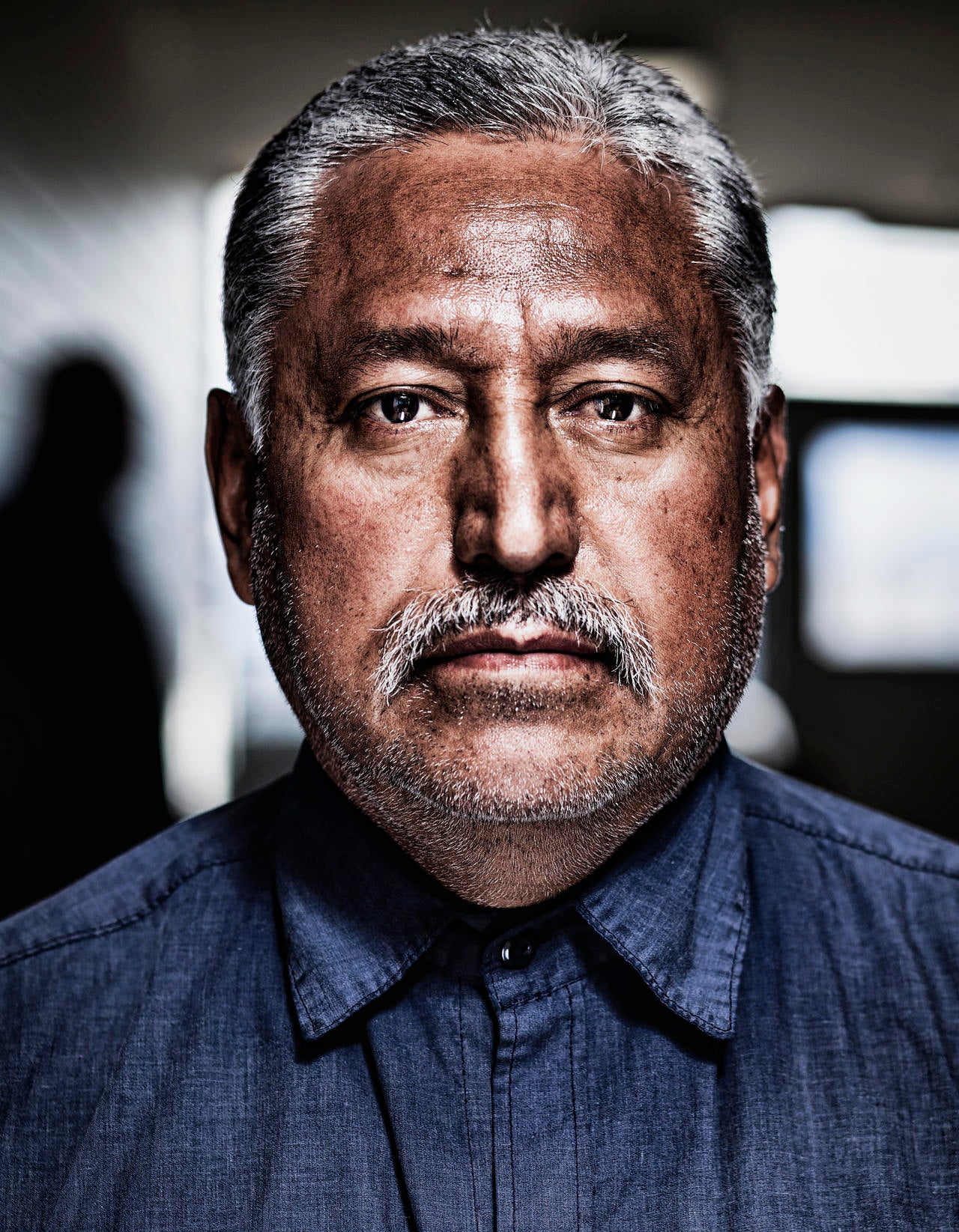
José Tareva, 57, undisclosed crime
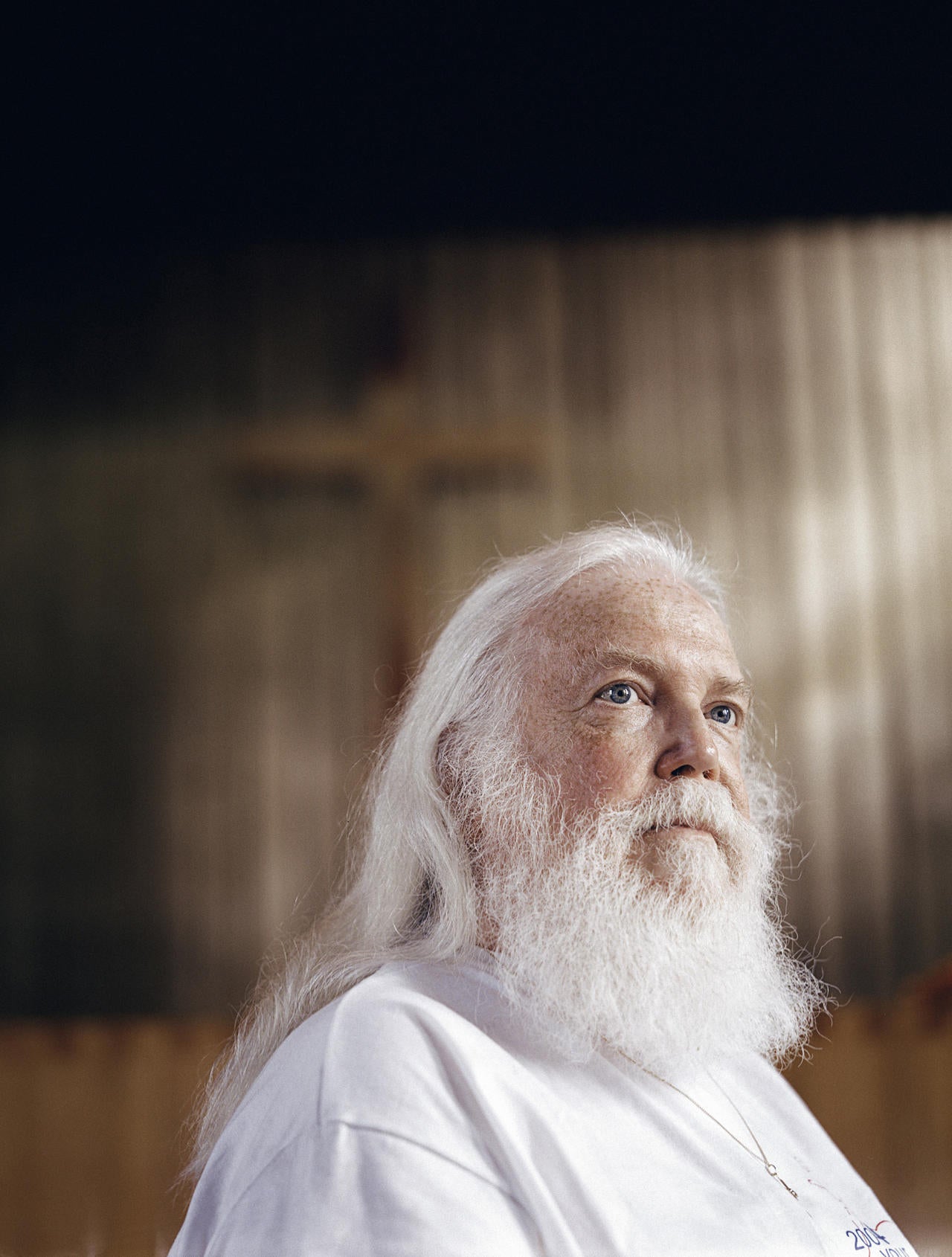
David Mclure, 70, sexual assault
“I was a soloist at churches for a number of years. A choir leader. I worked for union affairs as a supervisor in central Ontario. I’ve had a wealth of experience. I’m in for sexual assault. Indefinite. Aging in prison is very difficult. Because the system is not set up to take care of the aging individuals here. I take 25 pills a day. I have twelve different prescriptions of medication. I have heart problems, lung problems, thyroid and I’m a diabetic.”
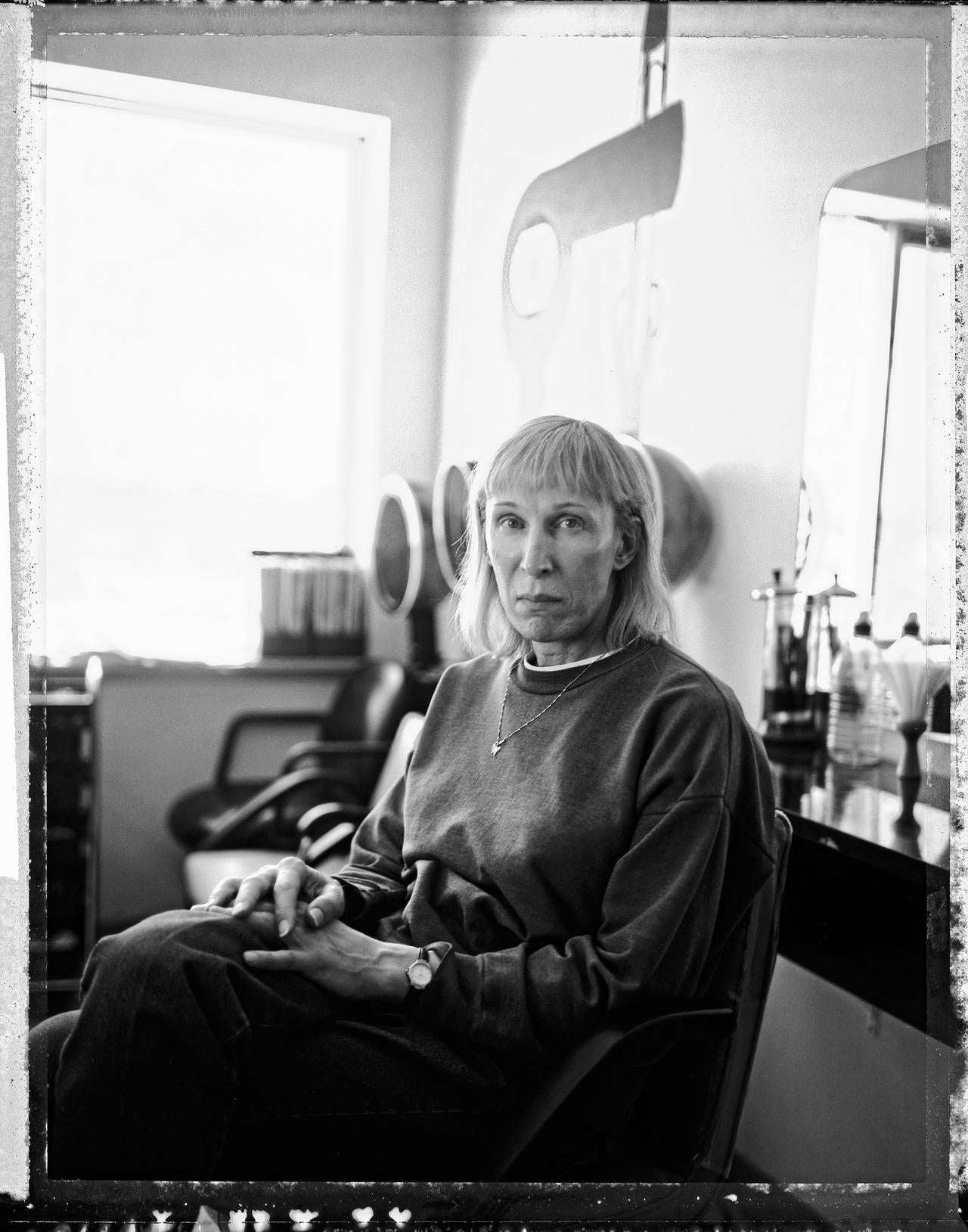
Christine White, 53, robbery
“I am a transgender person. I have spent about three years and seven months in segregated custody. Cells you wouldn’t put dogs into for longer than a day.
When I went through the change, I basically hid out for a few years. The satirical part is that I get ostracized by society and then by my family and I guess, in retrospect, I should have probably sought the post-gender surgery counseling to deal with these issues.”
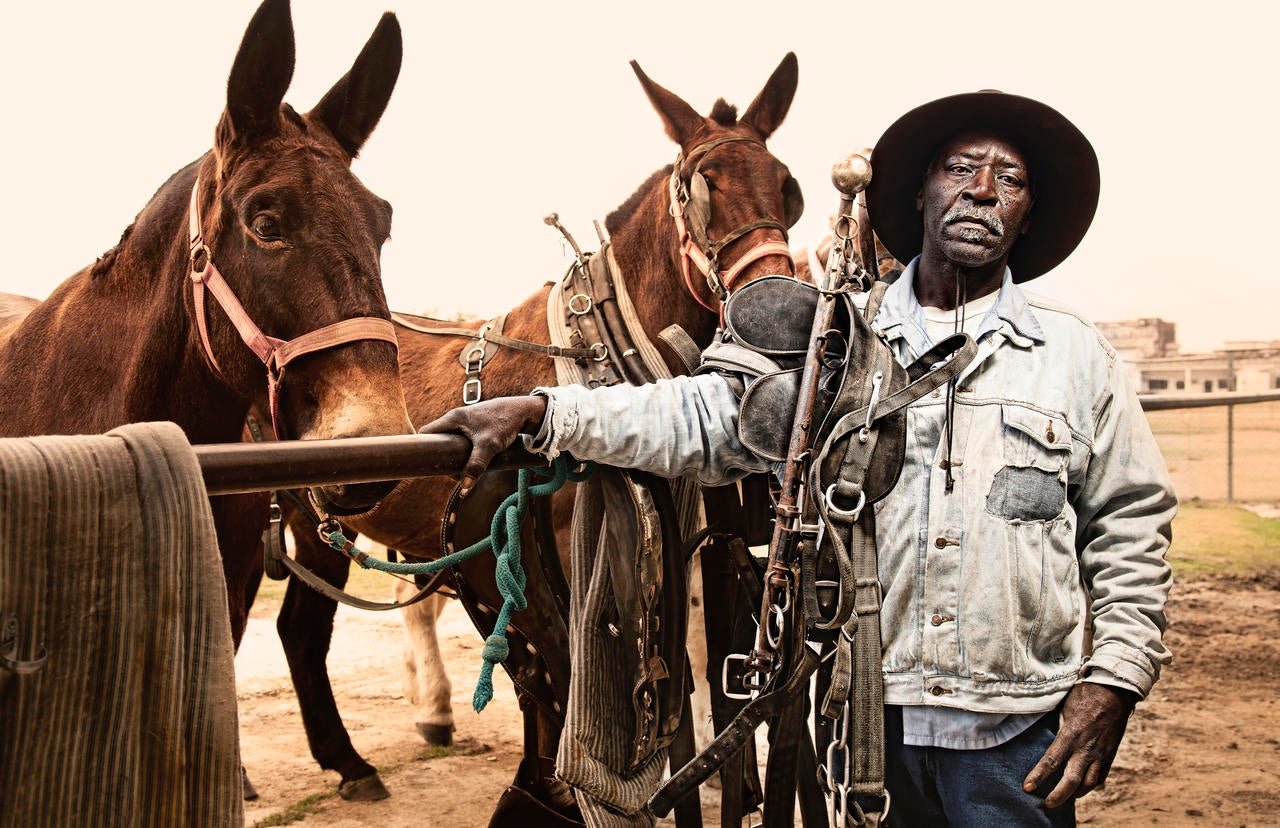
Isaac Eugene Smith, 57, second degree murder
“State of Louisiana? I always say it’s the Unforgiven State. The way the laws are. I wish they would [let us out] because we aren’t the same people as we were when we first came here. No matter who we are, whether you’re incarcerated or on the street, you’re not the same person you were as a juvenile, a teenager. Time’s going by. We’re not who we were 30 or 40 years ago. We’ve matured. We already knew right from wrong. But you make a mistake, it’s just like slipping and falling. You’ve got to get up and go again. There’s hope as long as you’re living. But there are so many of us that die with these life sentences here. They don’t believe in giving you no second chances. Can you imagine? I was eighteen years old. I’m 57 now. I can’t do none of the things I was doing then, now. You know better. You grow up. You mature—wisen up, y’know?”
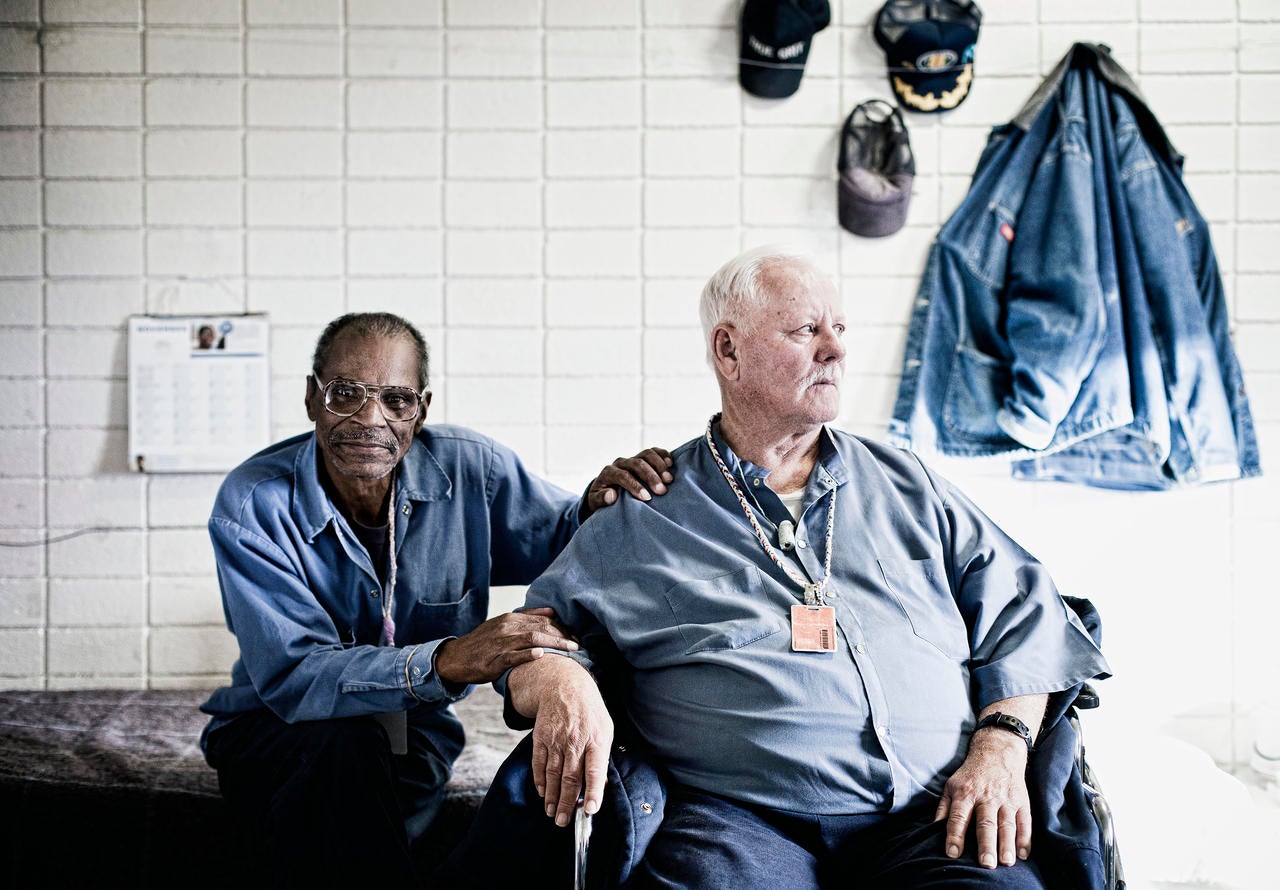
Cecil Williams, 65, murder (left) and Clark Morse, 70, vehicular manslaughter (right)
Cecil: “This is my best friend. We’re always together. I look out for him and he looks out for me. We joke together. We have our meals together. I know most of the circumstances, that he had been drinking a little too much that night and on his way home, he ran into this young lady that hit the lottery. There were two sisters. One had hit the lottery in Las Vegas, some $36 million. She sent for her sister and she came to Las Vegas to be with her. And she just bought a new car. And Clark hit her. One of the sisters succumbed to the injuries of the crash. And the other one was paralyzed from the crash. And she’s very, very, very bitter. The media had a frenzy over it. It was on the internet, in all the magazines. He was like a celebrity. Y’know: ‘Drunk Driver Kills Girl That Wins Millions.’ It was because of her winning the Megabucks that it was such a big story. Vehicular manslaughter or drunk driving—he should have got three or four years. All told, he got 90 years. Five or ten on this one, three to four on that one. Every time he goes to the parole board, the surviving sister in her wheelchair comes up and petitions the parole board not to give him a parole. She’s very vocal and she has the support and they shoot him down.
This is not the guy who was convicted of that crime. He’s a big old teddy bear. He’s the big brother I never had.”
Ron Levine’s “Prisoners of Age” is currently on view on Alcatraz Island, in the San Francisco Bay, through December 2015. The series explores the socio-economic causes of crime and delinquency. He hopes his images spark discussion about the human dimension of growing old in prison, as well as to help the next generation learn the consequences of crime.